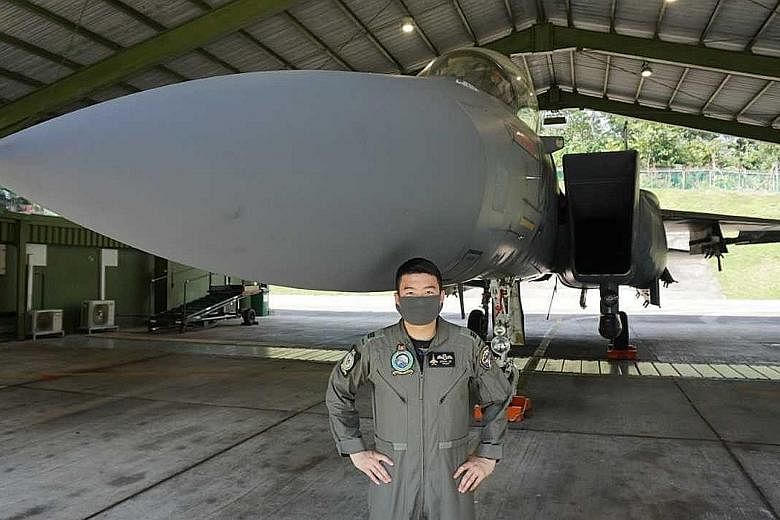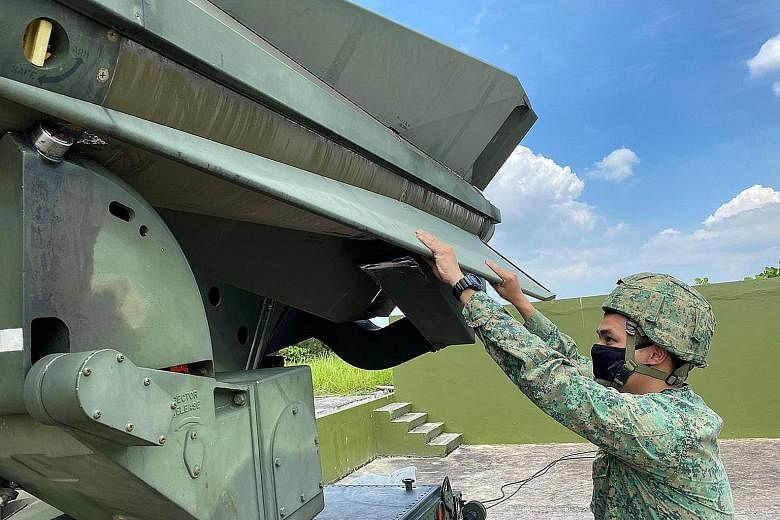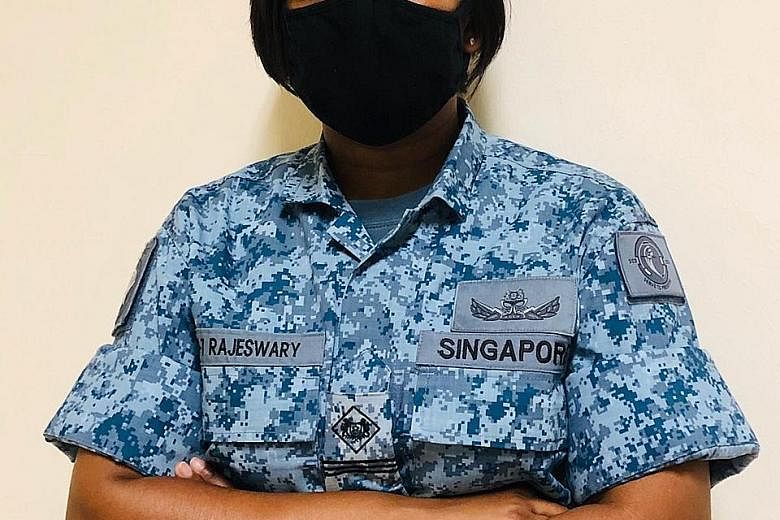Captain Dominic Lee, an F-15SG fighter pilot, has not been home with his wife and two young daughters for about two weeks.
Like many of his colleagues, he volunteered to stay at Paya Lebar Air Base while serving out his operational duties during the Covid-19 pandemic.
The isolation of some of Singapore's servicemen not only helps curb the coronavirus spread, but is also necessary to safeguard Singapore's borders, the 32-year-old told reporters in a teleconference interview on Saturday.
"This is to protect us from getting the virus outside," he added.
"For this to work, those on duty have to be isolated and stay on base, until our duty period ends and the next team takes over."
Earlier this month, the Singapore Armed Forces (SAF) implemented additional measures to maintain its operational readiness in the midst of the pandemic.
Servicemen performing critical functions, such as island defence, protection of key installations, maritime security, air defence and counter-terrorism operations, have been required to stay in their camps and bases before and during their operational duty.
This is to reduce the risk of infection in critical operational units.
Capt Lee, a regular in the Republic of Singapore Air Force's 149 Squadron, and his team have had to adapt to the stringent measures, including keeping a safe distance from the others on base.
For example, mission briefs before and after a flight are conducted via videoconferencing, instead of the usual meetings in a conference room or auditorium.
Common areas as well as crew rooms where servicemen have their meals are also marked out to ensure sufficient space between them. They also have to wear their masks wherever they go, except for strenuous activities or when it could compromise their safety.
"We have to be disciplined not to violate (these measures) and be creative to work around the limitations," he said.
When he first heard news that he had to stay on base during the operational duty period, Capt Lee was worried as his daughters are 21 months and seven months old. His wife looks after them at home.
He keeps in touch by following his wife's Instagram stories of the two girls throughout the day, and through video calls.
Family support has been crucial for many of the servicemen and women who have had to stay in their camps during their duties.
Corporal First Class Keith Lim, 22, an air defence weapon operator with the 163 Squadron, said his family members assure him through video calls that they are doing well at home, which in turn helps him to focus on his work.
He added: "It has made my NS life more worthwhile, knowing that my contribution is important in helping the nation to fight this Covid-19 crisis."
Special provisions have been made for servicemen to make video calls where they are normally not allowed to have camera-enabled devices.
Military Expert 3 Rajeswary Pandian Suppiah, an air opera-tions systems expert, said being able to connect with her family members including her husband, who works in the private sector, during her breaks helps her feel less homesick.
"That is something that I am very appreciative of, that we can talk to our families regularly and tell them we are safe and well taken care of," said the 42-year-old, who is with the 203 Squadron. She said her husband has chipped in to take care of matters at home.
"There are some sacrifices to be made, but you need a supportive spouse and family to keep going."














